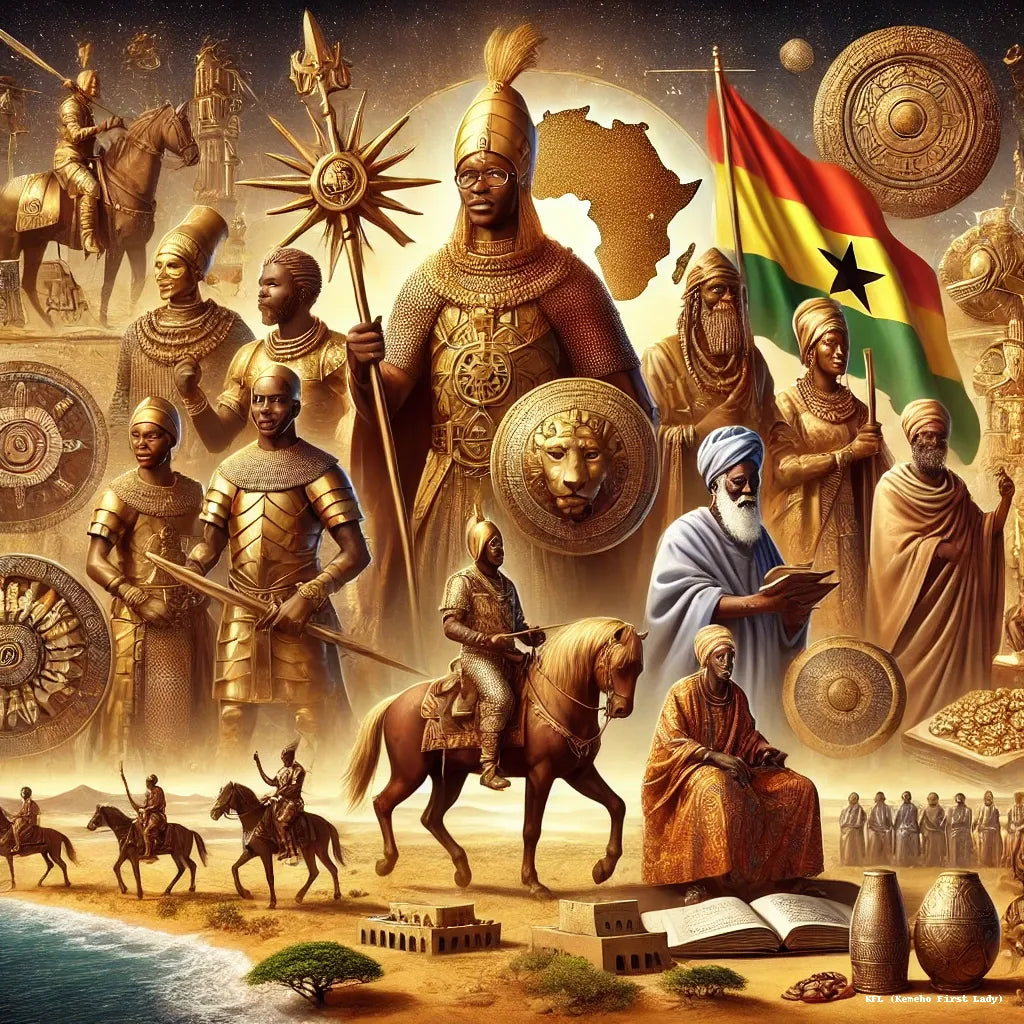
The great African civilizations: a majestic legacy
Share Label
Africa is the cradle of humanity and home to some of the most advanced civilizations in history. Contrary to common misconceptions, the continent’s history extends far beyond colonization and slavery. It is a tapestry of powerful kingdoms, thriving empires, and iconic figures who have influenced the world. This article delves into the great African civilizations that left an indelible mark on history.

1. The Ghana Empire: The Wealth of Gold (4th - 13th century)
The Ghana Empire, located in present-day Mali and Mauritania, was one of the earliest African kingdoms to gain worldwide fame for its prosperous trade.
- Resources: Ghana was rich in gold, which it traded for salt, a highly valued commodity.
- Political organization: A powerful king ruled the empire, supported by formidable warriors.
- Influence: It served as a commercial hub linking North Africa and sub-Saharan Africa.
The Ghana Empire paved the way for the great civilizations of West Africa.
2. The Mali Empire: The Greatness of Mansa Musa (13th - 15th century)
The Mali Empire succeeded Ghana and reached its peak under the reign of Mansa Musa (1312-1337), the wealthiest man in history.
- Trade and wealth: Mansa Musa controlled gold and salt routes, making Mali an economic powerhouse.
- Timbuktu, a center of knowledge: The city became a major intellectual hub, hosting the University of Sankore.
- Islamic influence: Mansa Musa spread Islam throughout West Africa and undertook a pilgrimage to Mecca that dazzled the Muslim world.
The Mali Empire laid the groundwork for a scholarly culture and exceptional African influence.
3. The Songhai Empire: The Pinnacle of West Africa (15th - 16th century)
The Songhai Empire followed Mali and became one of Africa’s largest empires under Sonni Ali Ber and Askia Mohammed.
- Military expansion: Sonni Ali conquered numerous territories and strengthened the army.
- Advanced administration: Askia Mohammed reformed the empire with a structured administrative system.
- Flourishing knowledge: Timbuktu and Djenné remained centers of learning.
Despite its grandeur, the empire was weakened by internal conflicts and the rising tide of European colonization.
4. Ancient Egypt: A Glorious African Empire (circa 3100 BCE - 332 BCE)
One of the world’s most iconic civilizations, Ancient Egypt emerged on the banks of the Nile and flourished for over 3,000 years.
- Architecture and engineering: The Pyramids of Giza, the Sphinx, and majestic temples are architectural marvels.
- Science and knowledge: Egypt pioneered mathematics, medicine, and astronomy.
- Powerful reigns: Pharaohs like Ramses II, Akhenaten, and Cleopatra left an invaluable legacy.
Despite attempts to erase its African identity, Ancient Egypt remains a source of pride for the continent.
5. The Kingdom of Kush and Nubia: The Black Pharaohs (circa 2500 BCE - 4th century)
A neighbor of Egypt, the Kingdom of Kush was a major power in ancient Africa.
- Influence on Egypt: At various times, Kushite kings ruled over Egypt and are known as the “Black Pharaohs.”
- Prosperous capital: Meroe, with its distinctive pyramids, was a powerful political and commercial center.
- Culture and writing: The kingdom developed its own script and unique artistic style.
The Kushites demonstrated the power and ingenuity of ancient Africa.
6. The Kingdom of Benin: A Center of Art and Power (13th - 19th century)
Situated in present-day Nigeria, the Kingdom of Benin was renowned for its political and artistic advancements.
- Advanced architecture: The city of Benin was surrounded by impressive walls.
- Art and sculpture: Benin bronzes, known for their incredible craftsmanship, are displayed in the world’s greatest museums.
- Political organization: A strong, centralized monarchy.
The kingdom’s destruction by the British in 1897 marked a turning point in colonial history.
Conclusion
African civilizations were models of prosperity, knowledge, and organization long before the colonial era. These empires and kingdoms played a vital role in world history and continue to inspire Africans and the diaspora today.
Acknowledging this heritage is about restoring a long-hidden historical truth and returning Africa to its rightful place in universal history. 🌍✨









